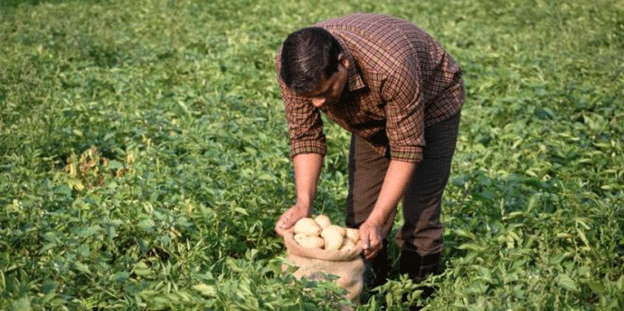India is set to address its potato supply challenges by allowing imports from Bhutan, as local production struggles to meet demand and prices remain high. The anticipated reduction in domestic potato output, coupled with significant weather-related damage in key growing regions, has prompted this policy shift.
Current Potato Production and Supply Challenges
The Indian government’s decision to permit potato imports comes in response to a forecasted decrease in domestic production and ongoing high prices. This year, the potato output in India is expected to be around 58.99 million tonnes, down from 60.14 million tonnes last year. Key potato-producing states, such as West Bengal and Uttar Pradesh, have faced severe weather conditions that have adversely impacted crop yields.
The Central Potato Research Institute has issued warnings about potential fungal infections, such as late blight disease, which could further threaten potato crops due to recent weather fluctuations. As a result, the availability of potatoes is constrained, contributing to a notable rise in prices.
Impact on Food Prices and Inflation
The impact of reduced potato production on food prices has been significant. Food inflation has surged to 9.4%, largely driven by higher costs for vegetables. The combined inflation rate for tomatoes, onions, and potatoes has risen by 48.4%, with potatoes experiencing one of the sharpest increases. This inflation trend reflects a broader pattern of rising vegetable prices due to adverse weather conditions and supply chain disruptions.
A recent report indicates that prices for potatoes are likely to remain firm over the coming months. Unlike previous years, where price increases were typically observed in November and December, the current shortage is expected to affect the market as early as October. This anticipation has led many large farmers and traders to hold onto their stock in hopes of further price increases.
Government Response and Import Policy
In response to the supply crunch, the Indian government has decided to permit the import of potatoes from Bhutan until June 2024. This move aims to stabilize the market and ease the pressure on domestic prices. Traditionally, India imports potatoes from various countries, including Brazil, Mozambique, and its neighbors like Nepal and Bhutan.
With India being the world’s second-largest producer of potatoes after China, the decision to import highlights the severity of the current supply issues. The U.S. and Ukraine follow as the third and fourth largest producers, respectively. India’s reliance on imports underscores the significant role of international trade in managing domestic food security and price stability.
India’s decision to allow potato imports from Bhutan reflects the critical state of its domestic potato supply and the broader challenges facing the agricultural sector. With production setbacks and high prices affecting consumers, the government’s import policy is a necessary step to mitigate the immediate supply gap and stabilize the market. Continued vigilance and adaptive measures will be essential to address ongoing challenges and ensure food security in the coming months.







